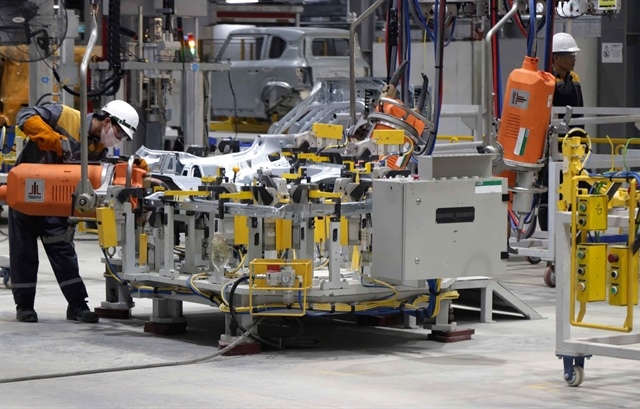Nuclear plant to be delayed
Nuclear plant to be delayed
Construction of Viet Nam's first nuclear power plant may not begin this year, as earlier scheduled, Minister of Science and Technology Nguyen Quan recently told the media.

The delay, which could last two to three years, is tied to developing additional safety measures for the nuclear power plant, to be built in central Ninh Thuan Province, he said.
According to the minister, by the end of this year Viet Nam would evaluate a feasibility study, select technology and a location for the plant, as well as invite bidding next year for the design and construction of the plant.
Officials anticipate that the first nuclear power reactor in Viet Nam would become operational in 2025.
Earlier this month, during his visit to Viet Nam, Director General Yukiya Amano of the International Atomic Energy Agency urged Viet Nam to avoid rushing to build a nuclear power plant.
Rather, he asked officials to be prepared to develop the first nuclear power project, since Viet Nam was just an emerging nuclear power country.
Speaking at the 5th annual Nuclear Power Asia 2014 conference yesterday in Ha Noi, deputy minister of Science and Technology Le Dinh Tien said that, like other emerging nuclear power countries, Viet Nam also faced key challenges in developing its nuclear power programme.
These included post-Fukushima concerns, safety measures, public acceptance, creating a regulatory framework, project licensing and financing, human resource development, technology advancement and application.
"Viet Nam has been actively preparing facilities and completing a regulatory framework for its first nuclear power plants," Tien said.
Since 2009, the Viet Nam National Assembly passed a resolution on the investment in Ninh Thuan Nuclear Power Projects with the first nuclear power plant set to be completed in 2020.
The country plans to building eight nuclear plants and 13 reactors with a capacity of 16,000 megawatts, which would supply 6 per cent of Viet Nam's electricity needs from nuclear power by 2030.
Tien said that, currently, Russian and Japanese consultants have prepared feasibility studies, as the country set aside eight sites to build nuclear power plants.
Considering that developing human resources was an important factor, in 2010 Viet Nam launched a national programme to train staff for working in the nuclear power industry, and sent students aboard to study and select eight domestic institutions to train power nuclear human force.
It also launched a national programme on public information and communication for nuclear power last year, he said, emphasising that public acceptance was a major challenge for developing nuclear power, when he shared his opinion at the conference with representatives from the neighbouring countries of Malaysia, Thailand and Indonesia.
Jong Kyun Park, director of the Nuclear Power Division at the International Atomic Energy Agency, said that newcomers to the nuclear power field faced challenges, mostly in human resources, legislative frameworks, financing, stakeholder involvement and safety management.
"The IAEA has developed the Milestone Approach to help guide member states," he added.
The principal researcher at the Japan Atomic Energy Agency, Kazuaki Yanagisawa, said that unique challenges included solving the problem of how to efficiently build nuclear power plants, as well as dealing with limited budgets and human resources.
He noted that safety matters were quite serious, which was an important task for Vietnamese policymakers, policy executors and engineers.
The three-day conference was hosted by Viet Nam's Nuclear Power Operator - Electricity of Viet Nam, with support from the Viet Nam Atomic Energy Agency, the World Nuclear Association, Viet Nam Union of Science and Technology Associations, and Viet Nam Atomic Energy Institute.
In attendance were more than 200 nuclear power professionals, 45 expert speakers heard during 40 conference sessions, 15 international exhibitors and 17 advisory board members.
vietnamnews
























